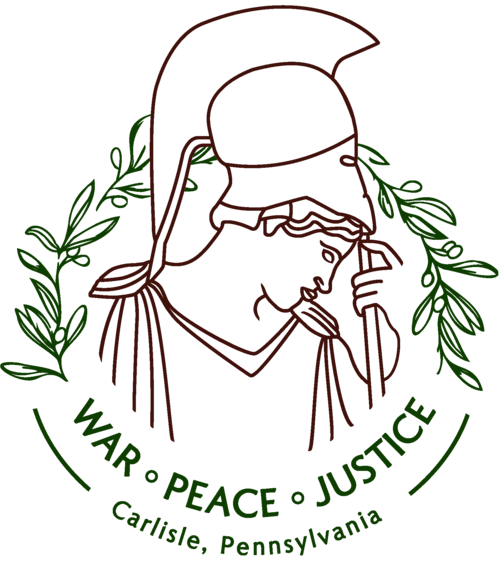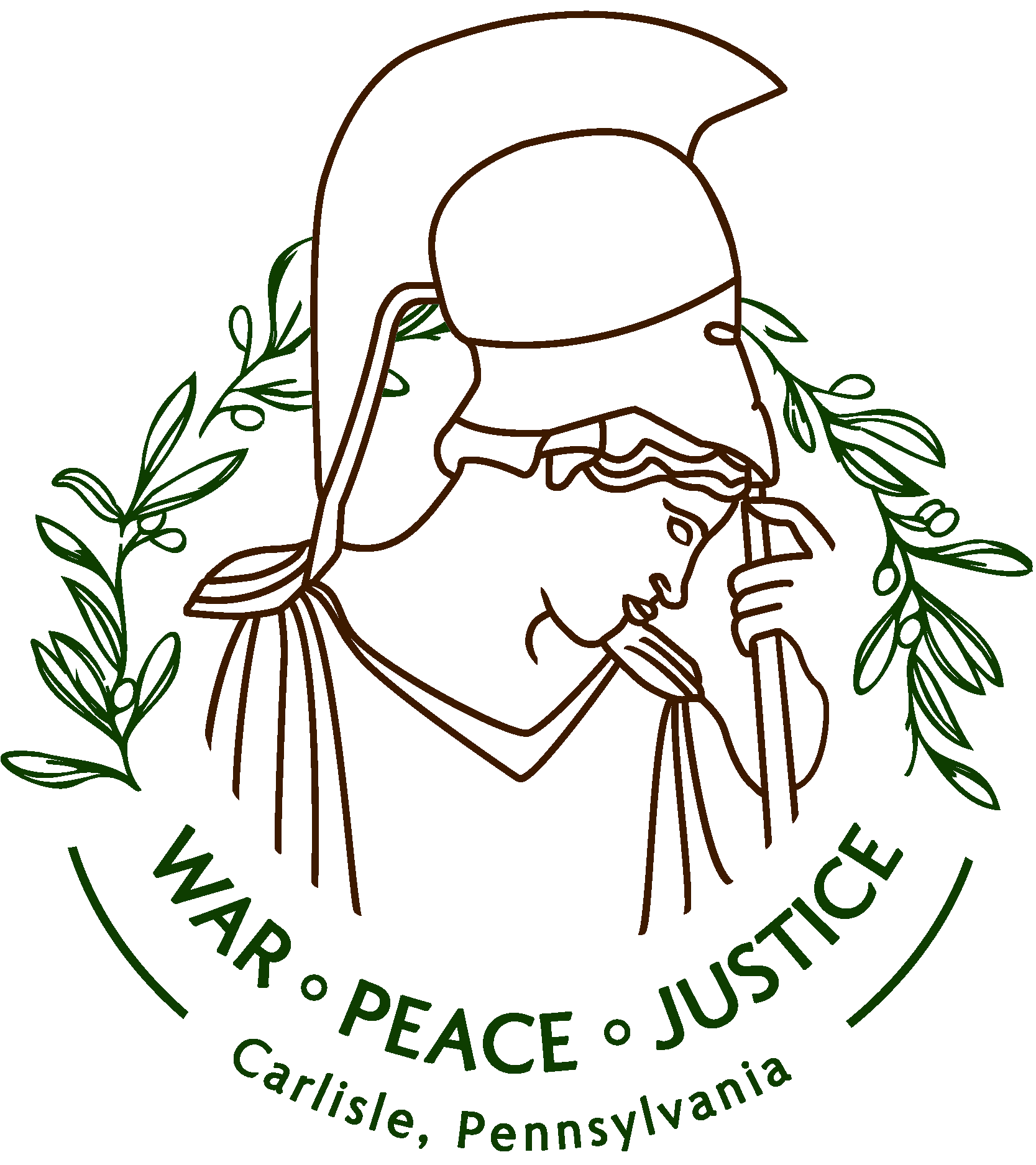War, Peace, and Justice Symposium
March 28-April 9, 2022, Carlisle, Pennsylvania
“The peace we seek and need means much more than the mere absence of war. It means the acceptance of law, and the fostering of justice, in all the world.”
What is the nature, purpose, and consequence of war?
What is justice in the context of war and peace?
How can we achieve a better peace?
The War, Peace, and Justice Symposium will examine the vast impact of war, and explore avenues of peace and justice, via public dialogue and the arts.
Such shared contemplation builds planks in the interpersonal bridge between civilian and military communities so that together, we can work toward a better peace.
Carlisle, a community of conscience, home to Dickinson College, the Army War College, a thriving historical society, a vibrant theater, and Penn State Dickinson Law, is a uniquely qualified location for this endeavor.
In addition to public discussion with experts from our partner institutions and beyond, the humanities are a key component of this symposium. Ethics cannot live without the humanities as its language. The arts help us understand who and what we are. Violence and conflict can be known through science, but understood through the humanities.
To wit: below, two protagonists of The Iliad, the goddess Athena and the Trojan warrior Hector, weigh the timeless questions of the consequences of war. Athena, champion of the Greeks, mourns all of the dead, Trojan and Greek alike, pondering each by name, as etched into the stone tablet by her side. Hector prepares for battle to defend his homeland, first sharing a tender goodbye with his wife, Andromache. Poet John Livecchi’s fictive rendering of their final conversation illuminates the breadth of this tragedy: war affects not only those who don the uniform, but beloved family, friends, and nation, extending its arc far into the future.
Mourning Athena, Marble Relief, Acropolis Museum, Athens, circa 470 BC.
Athena,
Greek mythological goddess
of wisdom and war,
is featured in Homer’s Iliad
as the warrior-defender,
protector of civilized life
and of artisan activities.
Hector to Andromache
I dreamt again of dry leaves rustling
Of winds howling off the shore
Carrying them away in great gusts
Till all were carried away.
It will be tomorrow, I think
Our final parting. Love for you
Tells me dishonor would be a small
Price for another moment together.
If we could but disappear,
I’d gladly surrender pride and glory
To keep you by my side,
My bride, my very life.
But we both know I must fall.
My men, my city, my family, even you
Demand I stand firm
Leaving you, our child,
Everyone I love to
Who knows what calamities.
My death, I fear, will be the easiest,
Quick as an eye’s blink,
And I’ll be spared knowing
What will follow.
Will the Greeks hold their honor?
Or will blood flow
like a river
With nothing sacred
And no one spared?
Since the gods shield us
From knowing the end,
Let my last glimpse of you Be your sweet smile.
Let's recall tender words we shared,
Give thanks for time together
For laughter and tears
And every moment
Life gave.
If she has nothing for us,
Let’s not berate her,
For what she gave was
All we needed to sustain us.
Andromache to Hector
No, my love, I won’t scold her, or you.
The trap we face
And what our end will be
Is all too clear.
And yes, I’ll smile for you.
But once you’re gone,
My heart will turn to something
More unyielding
Than the battle-hardened Greeks.
You say the gods spare us
Knowing all there is to come
But haven’t they shown us
Enough of war
To already hear the terrorized screams
And cries of despair that must follow?
And, as the gods calmly gaze,
The victors will ensure
Troy’s women more cause to weep
Than any man or boy who died.
For we will be their slaves
Forced to bear every humiliation
Hoping each breath will be our last.
Livecchi, John, Retellings: Homer's Characters Speak in Our Time, (c) 2018. Hear the author read his poems here.
Hector and Andromache exist in every age. Their dilemma echoes across the eras: in war, loyalty to family, nation, and conscience collide.
Our first commander in chief expressed it thus:
“When we assumed the soldier, we did not lay aside the citizen.”


